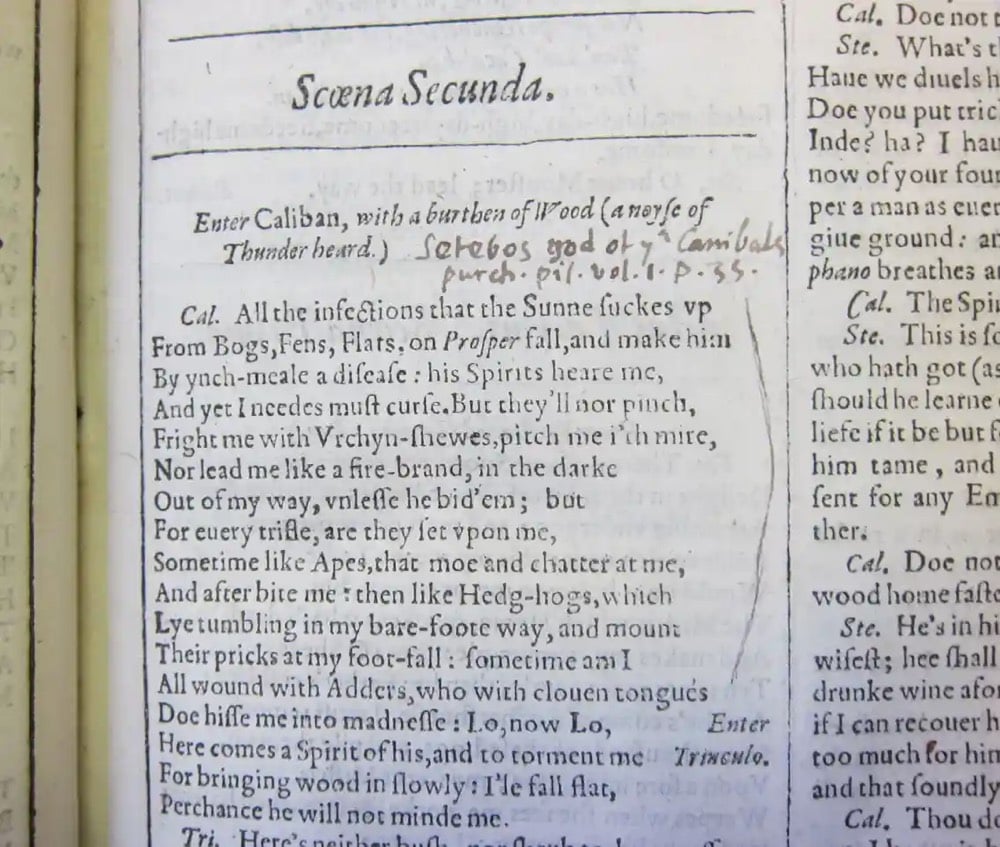Milton’s Annotated Copy of Shakespeare’s First Folio Discovered

Based on handwriting analysis, Jason Scott-Warren, the Director of the Cambridge Centre for Material Texts, has discovered that a copy of Shakespeare’s First Folio from 1623 was owned by John Milton, author of Paradise Lost, who annotated it with copious notes.
It’s always annoying when someone tries to claim that they’ve discovered a lost literary artefact. I was myself a little bit brutal when, five years ago, we were treated to the supposed rediscovery of Shakespeare’s dictionary. In this as in other cases, there’s usually a lot of wishful thinking, plus copious spinning of the evidence to make it seem plausible, and elision of anything that doesn’t seem to fit. However, I’m going to make my own unwise pronouncement on the basis of just a few hours of research. I’m going to claim to have identified John Milton’s copy of the Shakespeare First Folio of 1623.
There already seems to be a consensus developing that Scott-Warren’s analysis rings true.
But he soon found that other scholars were agreeing with him. “Not only does this hand look like Milton’s, but it behaves like Milton’s writing elsewhere does, doing exactly the things Milton does when he annotates books, and using exactly the same marks,” said Dr Will Poole at New College Oxford. “Shakespeare is our most famous writer, and the poet John Milton was his most famous younger contemporary. It was, until a few days ago, simply too much to hope that Milton’s own copy of Shakespeare might have survived — and yet the evidence here so far is persuasive. This may be one of the most important literary discoveries of modern times.”
(via open culture)





Stay Connected